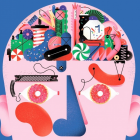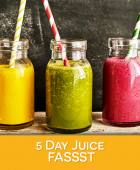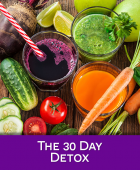
Sugar – Not So Sweet to the Brain
Studies have linked eating too much sugar to overeating, poor memory, learning disorders, and depression. We have a national problem: our chronic intake of sugar is ruining our brains.
Per the U.S. Department of Agriculture (USDA), the average American consumes 160 pounds of added sugar each year. Picture this: it’s equivalent to five grocery store shelves loaded with around 30 one pound bags of sugar on each one. Sound staggering? Sugar is so ubiquitous in our diets that most of us have no idea just how much we’re consuming. How about 27.5 teaspoons of sugar a day per capita, according to the Centers for Disease Control (CDC) or one quarter of a typical 2000 calorie a day.
Here’s how sugar affects the brain according to research: Good brain function depends on a brain chemical known as brain-derived neurotrophic factor (BDNF). Without BDNF, our brains can’t form new memories and we can’t learn (or remember) very much. Levels of BDNF are particularly low in people with impaired glucose metabolism–diabetics and pre-diabetics–and as the amount of BDNF decreases and sugar metabolism worsens.
Continually consuming added sugar reduces BDNF. This contributes to insulin resistance, which leads to type 2 diabetes and metabolic syndrome, and eventually to a host of other health problems. When this happens, your brain and body spiral into a destructive cycle that is difficult to reverse. In other words, you don’t want to go there. That’s why it is so important to not to get to this place. If you you struggle with a continual sweet tooth, I want you to join my 10 Step Sugar Detox Program and get my book Sugar Knockout.
Research has also linked depression and dementia to low BDNF. Some researchers wonder if low BDNF may be the smoking gun in these and other diseases, like Alzheimer’s. A number of conditions tend to appear in clusters in epidemiological studies. More research is being conducted on this subject, but what seems clear in any case is that a reduced level of BDNF is bad news for our brains, and chronic sugar consumption is one of the worst culprits.1
Notes
1 http://www.forbes.com/sites/daviddisalvo/2012/04/01/what-eating-too-much-sugar-does-to-your-brain/#35abc0f87a20
Curb Your Carb Cravings Juice
 Jerusalem artichoke juice combined with carrot and beet is a traditional remedy for satisfying cravings for sweets and junk food. The key is to sip it slowly when you get a craving for high-fat or high-carb foods.
Jerusalem artichoke juice combined with carrot and beet is a traditional remedy for satisfying cravings for sweets and junk food. The key is to sip it slowly when you get a craving for high-fat or high-carb foods.
- 3-4 carrots, scrubbed well, tops removed, ends trimmed
- 1 Jerusalem artichoke, scrubbed well
- 1 cucumber, peeled if not organic
- 1 lemon, peeled if not organic
- 1/2 small beet, scrubbed well with stems and leaves
Cut produce to fit your juicer’s feed tube. Juice ingredients and stir. Pour into a glass and drink as soon as possible.
Serves 1










